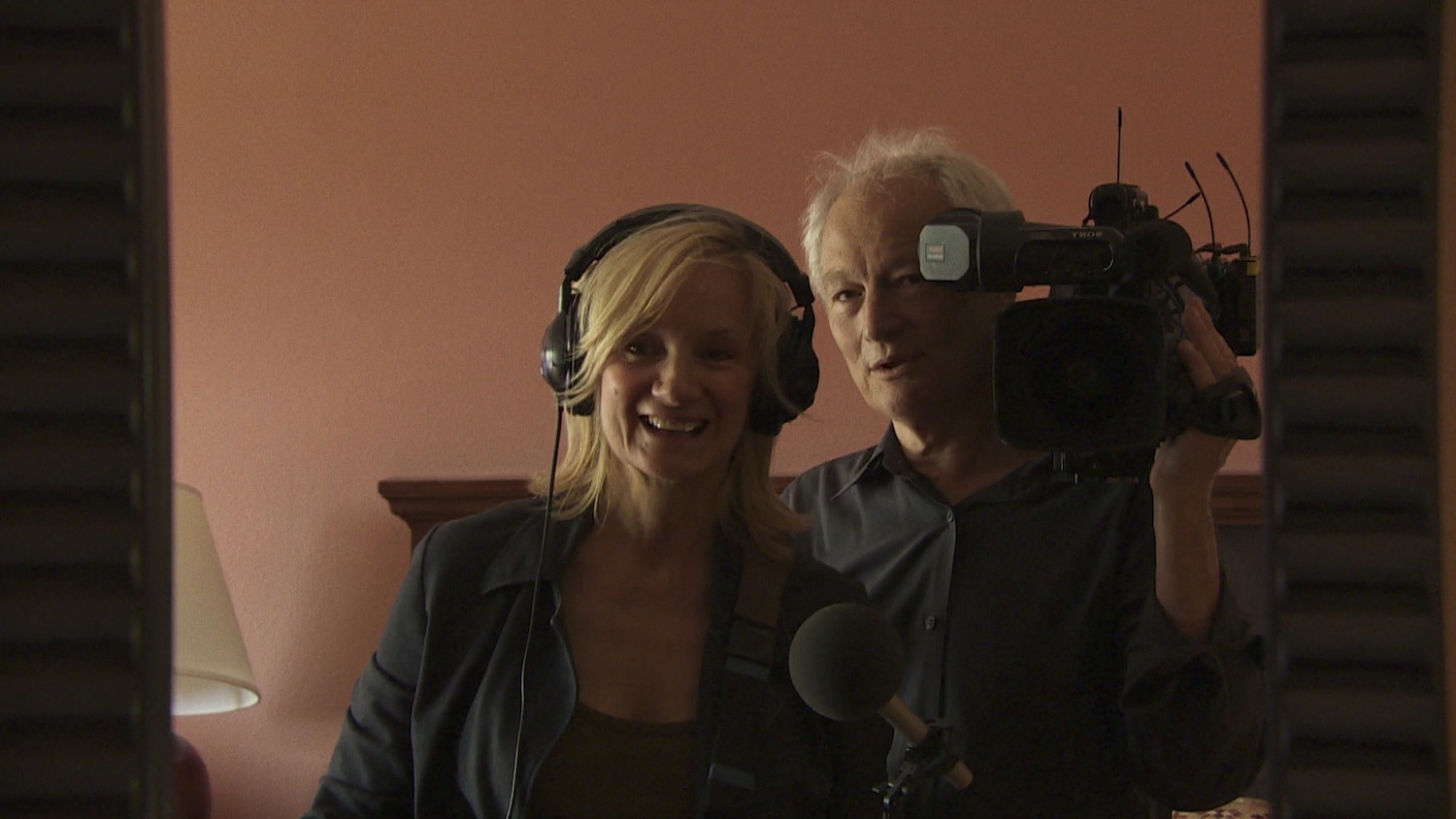Shari Robertson and Michael Camerini have been making documentary films together for more than 25 years.
Their New York City production company is the Epidavros Project/Epidoko Pictures.
Before joining forces, both made movies about cultures and political situations outside the U.S. They filmed matriarchs of extended families in Haryana State, India, and young Khmer Rouge guerrilla fighters in Western Cambodia, coca growers in Peru's Upper Huallaga Valley and tribal elders in Kankan, Northeast Guinea.
Their first feature documentary collaboration was a deep look at the barriers to girls' education in Africa, These Girls are Missing. Their first U.S. film came next—an inside look at the American political asylum system in the groundbreaking documentary feature, Well-Founded Fear.
Then in the summer of 2001, still in the United States, they entered into the mysteries of Capitol Hill, by far the most complex culture and political situation either of them had encountered anywhere. Twelve years later, the New York Film Festival premiered all 10 feature documentaries in the resulting film series How Democracy Works Now. Each title is a stand-alone feature, and all together they create the grand arc of a single story, a unique piece of American political history.
In the Fall of 2015, they returned to Lincoln Center and the New York Film Festival to premiere the series' capstone, Immigration Battle/Reasons to Believe. The national U.S. broadcast on PBS Frontline followed in late October.
After Capitol Hill, Camerini and Robertson headed to Africa’s Sahel region for an up-close look at ordinary people working to counter violent extremism in NIGER:Tales of Resilience. Their current project, by far the most challenging of their careers, led them to SW Kansas and the land where wagon trains once rolled. On Valentine’s Day, 2018, they moved to the town that eventually became the name of their upcoming ‘documentary in 4 parts’ - Liberal, Kansas.
Widely respected for their ability to get deep inside complex situations and tell a nuanced story, their work has screened at Sundance, Berlin, San Francisco, Full Frame, and numerous major festivals, and been broadcast on HBO, CNN International, PBS, the BBC, Channel 4 London and many television networks overseas.
A hallmark of all the work is longevity. As the filmmakers explain, “Our first loyalty is to our subjects. They are our first audience and we want them to see their truth on screen in our movies.”
Evidence for their uncanny ability to gain access and the success of their approach is how often Camerini-Robertson films are still in use by target audiences - FAWE and the US Peace Corps have used These Girls extensively throughout Africa and around the world; the US Asylum Corps and DHS, as well as numerous Immigration Courts, law schools and NGO Asylum Clinics have relied on Well-Founded Fear for years; and the How Democracy Works Now series has been in wide rotation on Capitol Hill as well as among journalists, academics and an array of issue advocates through several decidedly contrasting Republican and Democratic administrations.
Major titles in the Camerini-Robertson catalogue, including Well-Founded Fear, all 10 films in the How Democracy Works Now series, These Girls are Missing, and NIGER:Tales of Resilience are now available to the public to screen free with just a library card - on the remarkable streaming platform KANOPY.com. Kanopy is supported by numerous public libraries and academic institutions across the USA and around the world.
Growing up in East Texas and New Mexico, Shari Robertson couldn’t wait to start traveling and know the world. She studied anthropology and ethnographic film to begin her career in the rainforest of Papua New Guinea, chronicling rapid culture change in a remote tribal society. Before she joined forces with Michael Camerini, her documentary work mostly examined the politics of difficult situations, often in inaccessible places, usually for European television.
Michael Camerini made his first film at age 19, in Varanasi, India. It is still in use in universities today. His style of filming encourages people to tell their own stories, whatever the cultural context. The unifying theme in his work is an interest in what it means to be a foreigner.


